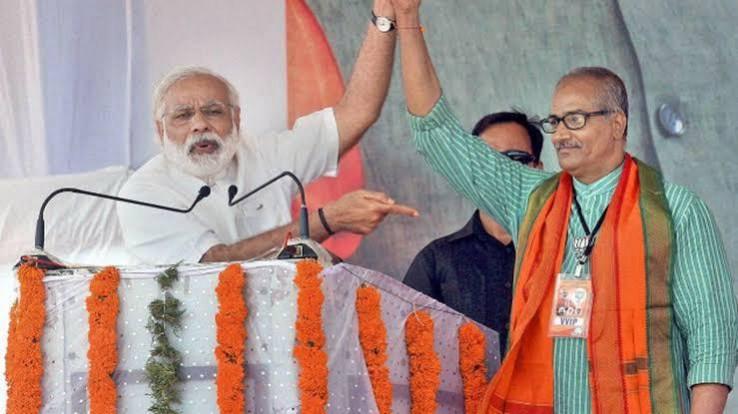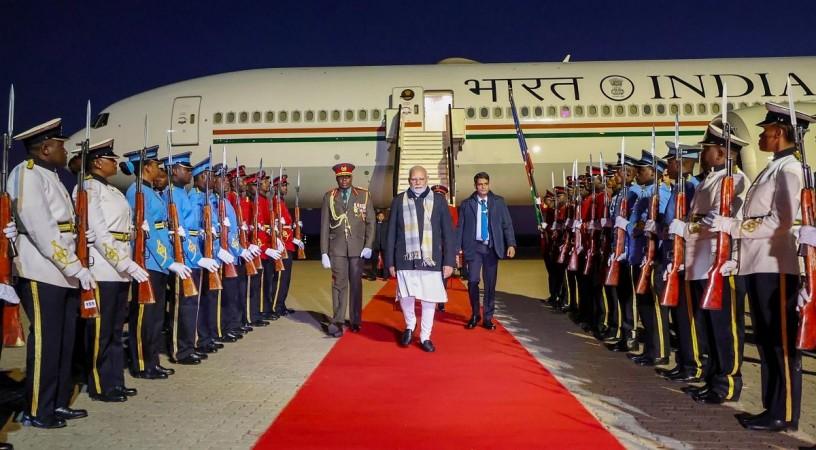
C. Sadanandan Master, a senior leader of the Bharatiya Janata Party (BJP) and a survivor of a brutal political attack in Kerala, has been nominated to the Rajya Sabha by President Droupadi Murmu. This nomination is a significant acknowledgment of Sadanandan Master's resilience and dedication to public service, despite enduring a life-altering assault. A retired high school teacher from Kannur and currently the BJP's Kerala state vice-president, Sadanandan Master has become a symbol of perseverance and commitment.
His political journey is marked by both pain and determination. On January 25, 1994, while serving as the Rashtriya Swayamsevak Sangh (RSS) Kannur district sahakaryavahak, he was attacked by Communist Party of India (Marxist) [CPI(M)] cadres near his home. In a shocking act of political violence, both his legs were severed. Despite this horrific assault, Sadanandan Master refused to retreat from public life. Today, he moves with the aid of artificial limbs and remains active in political and social spheres.
The nomination to the Rajya Sabha is seen as a recognition of not only his courage but also his long-standing service to the party and society. Known for his steadfast ideology and educational background, Sadanandan Master taught social science at Sree Durga Vilasam Higher Secondary School in Peramangalam, Thrissur district, until his retirement. He had previously contested as the BJP candidate from the Koothuparamba Assembly constituency in Kannur, a region often in the headlines for political clashes.
Political Landscape and Challenges
During the 2021 Kerala Assembly elections, Prime Minister Narendra Modi highlighted Sadanandan Master's story as a symbol of sacrifice and inspiration. The Prime Minister praised him for his courage and commitment to democratic values, despite facing unimaginable violence. Reacting to his nomination, Sadanandan Master told IANS, "This is not just a recognition of my journey, but a consideration for the people of Kerala by the national leadership." He also confirmed that Prime Minister Modi had personally spoken to him a few days ago regarding the nomination.

Political observers view his elevation to the Upper House as an effort by the BJP to send a strong message of inclusion, acknowledging voices from states where the party has traditionally faced stiff opposition. For Kerala, the nomination of Sadanandan Master is both symbolic and significant, serving as a reminder of the human cost of political conflict and a tribute to those who continue to serve undeterred.
The political landscape in Kerala has been fraught with tension and violence, often marked by clashes between the CPI(M) and the BJP. The 2021 Kerala Assembly elections were a testament to this ongoing rivalry. The Left Democratic Front (LDF), under the leadership of Pinarayi Vijayan, was set to return to power, indicating that there was no significant anti-incumbency sentiment prevailing in the state. The Vijayan administration had garnered goodwill for its delivery of essential food kits during the COVID-19 lockdown and for enhancing social welfare pensions.
However, the campaigns of the Congress and the BJP were focused on a range of issues, including alleged corruption and nepotism within the administration, the 'betrayal' of Hindu sentiments on the Sabarimala issue, and the state's colossal debt. The BJP, in particular, ran a high-pitched campaign, bringing in star power from the Centre, including Prime Minister Narendra Modi and other prominent leaders.
In the Thalassery constituency, the BJP faced a unique challenge when the nomination papers of its candidate, N Haridas, were rejected. The party decided to support independent candidate COT Nazeer, a former CPI(M) cadre. The United Democratic Front (UDF) hoped to capitalize on the deep-rooted rivalry between the BJP and CPI(M) to win over BJP votes. An office-bearer of the UDF mandalam committee noted that while BJP leaders were antagonistic to the UDF, the party cadre might vote for the UDF to express their anger against the CPI(M).
The political dynamics in Kerala are further complicated by the broader context of religious nationalism in India. The rise of religious nationalism is not unique to India; it is a phenomenon observed in many democracies worldwide. In India, the BJP's brand of Hindu nationalism, or Hindutva, has been a significant force in shaping the country's political landscape. This ideology posits that India is fundamentally a polity by, for, and of the majority Hindu community.
India's secular nationalism, on the other hand, combines a commitment to territorial integrity with political pluralism, advocating for the inclusion of the country's diverse ethnic and religious groups. The Indian Constitution, while endowing citizens with religious liberty and prohibiting discrimination, also allows for state intervention in religious affairs. This "principled distance" between religion and the state is a unique feature of Indian secularism.








